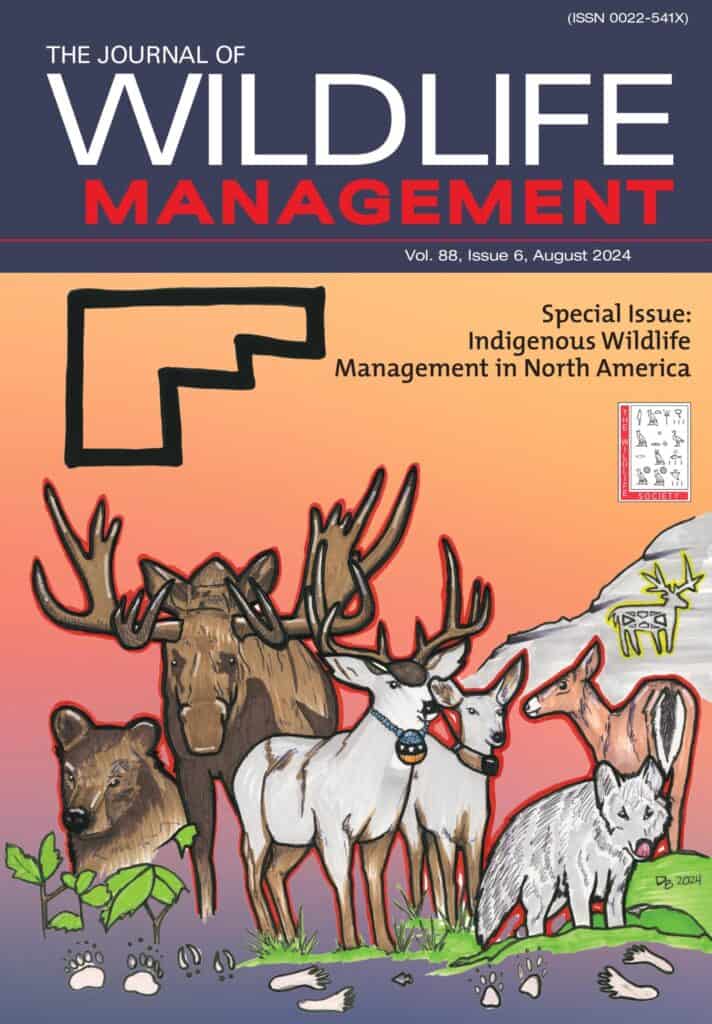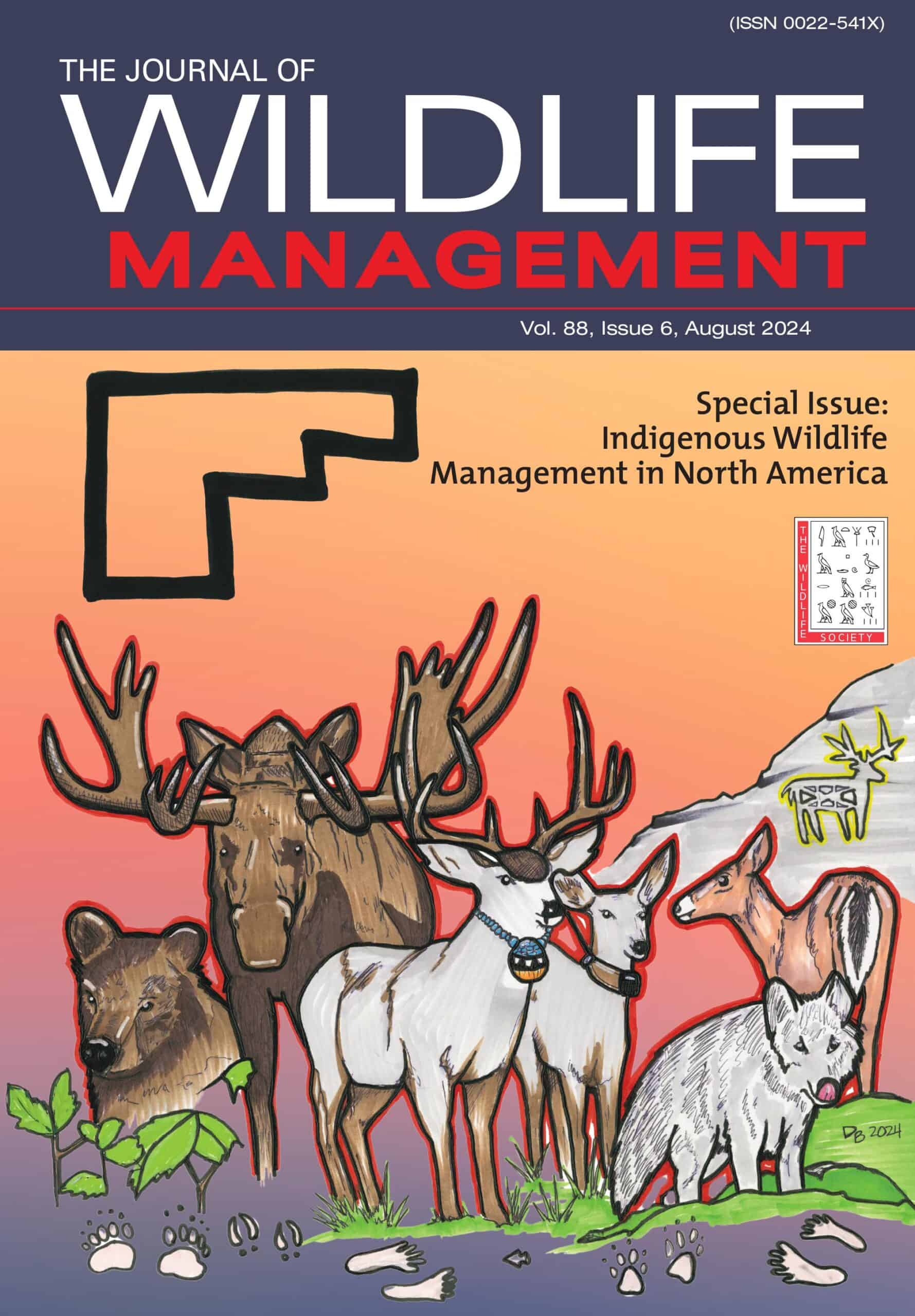Share this article
Special JWM issue highlights Indigenous wildlife research and management
Studies cover policy issues, Tribally driven research, management activities and Indigenous knowledge
Indigenous people have lived in North America and collected knowledge on wildlife for time immemorial. That knowledge is important to tap into when it comes to conserving and managing wildlife.
The latest special issue of The Journal of Wildlife Management recognizes this by sharing a number of journal articles focusing on the ways Tribal entities are working on wildlife conservation and management on and off Tribal lands.
Articles within the special issue tackle topics from the state of Traditional Ecological Knowledge in the wildlife management profession, to habitat use of mule deer (Odocoileus hemionus) in the Pueblo of Santa Ana, New Mexico, to Indigenous co-stewardship of North American moose (Alces alces). This diversity of work touches on policy issues, Tribally driven research, management activities and Indigenous knowledge.
Readers may notice some of these papers may not have the typical introduction, methods, results and discussion organization common in other scientific articles. This represents the fact that Indigenous knowledge is different from the traditional approach of Western science. Other journal articles represent the traditional Western science approach but include research on Tribal lands and in collaboration with Tribal institutions.
“Indigenous knowledge provides information that has been collected over lifetimes, and the use of [Indigenous knowledge] and Western science together will yield more comprehensive information about wildlife species than either method alone,” wrote Jonathan Gilbert and Michel Kohl, who authored an editorial about the special issue.
Read the special issue: Indigenous Wildlife Management in North America here.

Header Image: Through an Indigenous perspective, wildlife are depicted are relatives. The images on this special issue of JWM represent the relatives represented in the articles. Credit: Daniel Bird (Kewa Pueblo)








